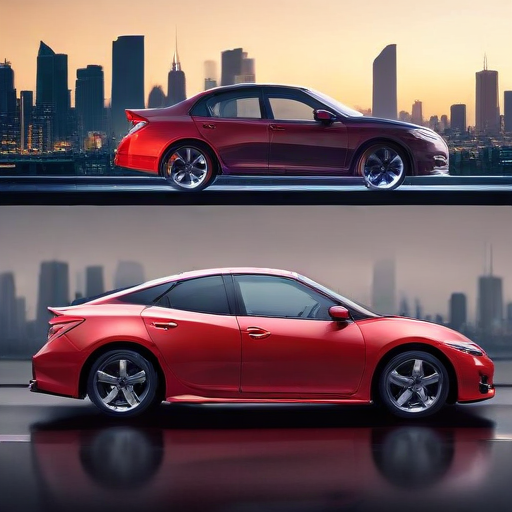Japanese automakers Honda and Nissan have officially initiated merger discussions, with a goal of becoming the world’s third-largest automobile manufacturer based on sales. This significant move comes as both companies navigate the rapidly evolving auto industry, especially in light of the transition away from fossil fuels.
On Monday, the two companies disclosed that they had signed a memorandum of understanding with Mitsubishi Motors, a smaller member of the Nissan alliance, agreeing to join the integration talks. Toshihiro Mibe, President of Honda, stated that they plan to create a new joint holding company, with Honda initially leading the management. The intention is to formalize the merger process by June and potentially finalize it by August 2026.
While no specific financial figures were disclosed, Mibe acknowledged that there are aspects that require careful analysis before the merger can be officially implemented. He candidly mentioned the possibility that the merger may not come to fruition, highlighting the uncertainties involved.
Japanese automakers, including Honda and Nissan, have been striving to catch up in the electric vehicle sector, as they have been outpaced by competitors in this critical market. Reports suggest that the discussions may have been prompted, in part, by interests from Foxconn, the Taiwanese iPhone manufacturer, to collaborate with Nissan, which already has a partnership with Renault of France and Mitsubishi.
If the merger is successful, it could create a combined entity with a market valuation exceeding $50 billion, bringing together Honda, Nissan, and their allies against formidable competitors like Toyota and Volkswagen. Even with this merger, Toyota would still lead with an impressive output of approximately 11.5 million vehicles in 2023, while the combined production of the three smaller manufacturers would reach around 8 million.
Both Honda and Nissan recently agreed to share components for electric vehicles and jointly research software for autonomous driving, marking a step toward greater collaboration. Honda aims to bolster its SUV offerings by potentially acquiring Nissan’s models, such as the Armada and Infiniti QX80, while benefitting from Nissan’s extensive experience in electric vehicle technology.
Despite the potential for growth, Nissan faces challenges, including recent job cuts affecting around 6% of its workforce and a significant production capacity reduction. The company has experienced financial difficulties, leading to a credit outlook downgrade. However, it maintains strong finances, with notable cash reserves, which could support its strategic ambitions.
In light of the industry’s trend toward consolidation, analysts suggest this merger underscores the necessity for Japanese automakers to remain competitive in an increasingly challenging market. The potential collaboration may lead to greater efficiency and enhance their ability to respond to evolving consumer demands.
This development could be a turning point for both Honda and Nissan, allowing them to enhance their competitiveness and innovation capabilities in the electric vehicle sector while serving a broader customer base.
